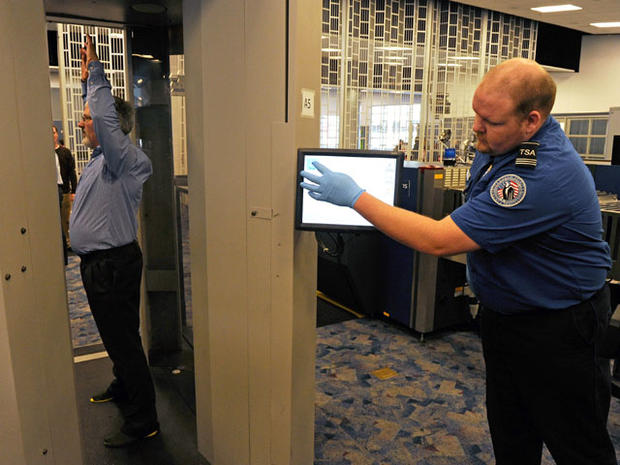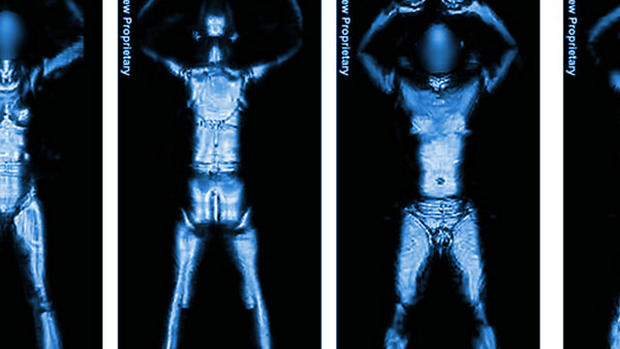Europe bans airport scanners over cancer fears: How about U.S.?
(CBS) Are airport body scanners safe?
PICTURES: Airport Scanners and 12 Must-Know Radiation "Risks"
The European Union doesn't seem to think so. Its executive body has banned the so-called "backscatter" X-ray body scanners until further research confirms that there's no cancer risk associated with the scanners - which are widely used in the U.S.
"In order not to risk jeopardizing citizens' health and safety, only security scanners which do not use X-ray technology are added to the list of authorized methods for passenger screening at EU airports," the European Commission said in a written statement.
England's Manchester Airport is the only airport in Europe that still uses the backscatter scanners. It will be given permission to continue to use them through November 2012 while they are tested, The Guardian reported.
There are about 250 scanners used at U.S. airports, which raises a question American travelers want to know: What about us?
U.S. officials insist the scanners are safe. "We rigorously test our technology to ensure it meets our high detection and safety standards before it is placed in airports," Transportation Security Administration (TSA) spokesperson Michael S. McCarthy, told CBS News in an email. "Each scan is equivalent to the exposure received during about two minutes of airplane flight at altitude."
The administration is so confident the scanners are safe that it may call off a congressionally requested health study on backscatter X-ray machines in light of an upcoming report that validates earlier studies on the machines' safety, CNN reported.
"I just learned about an inspector general report that is in draft form that validates those prior studies, so that may suffice," TSA Administrator John Pistole, told CNN. We'll work with Congress to see whether that addresses their concerns."
That announcement raised concerns for one of the representatives who requested the report.
"Travelers are concerned that the radiation emitted from these machines may be damaging to passengers' health," Sen. Susan Collins, R-Maine who called for the study, told CNN. "I hope the Obama administration is not backing away from an independent study."
What do radiation experts have to say?
Kelly Classic, a health physicist at the Mayo Clinic and spokesperson for the Health Physics Society, told CBS News in an email the amount of radiation people get from these machines is "inconsequential."
"These body scanner can safely be used as long as they meet or are below the American National Standards Institute standard on the amount of radiation emitted," Classic said.
While most experts agree that the scanners only give off low doses of radiation, many disagree over how dangerous that might be.
Earlier this month, not-for-profit investigative journalist group ProPublica teamed up with PBS Newshour and reported that the TSA has repeatedly said the scanners are safe, "glossing over" previously held scientific views that even low doses of X-ray radiation increase cancer risk. The investigation found "no compelling evidence" that there is any type of radiation with zero cancer risk, and found minimal radiation from scanners could potentially cause up to 100 extra cancer cases a year.
"Why would we want to put ourselves in this uncertain situation where potentially we're going to have some cancer cases?" Dr. David Brenner, director of Columbia University's Center for Radiological Research, told ProPublica.
The TSA has more on X-ray screening technology safety.


